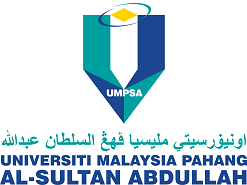Effect of Process Parameters on Immobilization of Recombinant Escherichia coli on Coconut Fiber
DOI:
https://doi.org/10.15282/jceib.v10i1.10438Keywords:
Cell immobilization, Escherichia coli, coconut fiber, pH, time, temperatureAbstract
Escherichia coli (E. coli) is the earliest and most widely used host to produce recombinant proteins, one such example being cyclodextrin glucanotransferase (CGTase) which has found application in numerous industries such as food, environmental engineering and pharmaceutical. The recombinant protein in E. coli was applied to overcome the low output of CGTase from Bacillus species such as Bacillus lehensis and Bacillus licheniformis. However, cell lysis and plasmid instability have been some of the stumbling blocks during the production of recombinant protein in E. coli. Therefore, cell immobilization has been proposed as a way to increase CGTase production while maintaining high cell stability. The objective of this study is to immobilize recombinant E. coli on coconut fiber. The effect of the process parameters, namely pH level (5, 6, 7, 8, and 9), contact time (12, 15, 18, 21, 24, and 27 hours), and temperature (20, 25, 30, 35, and 40 °C), towards the immobilization of recombinant E. coli onto coconut fiber was studied. The optimal pH resulted in the highest immobilization yield was pH 8 (58.90%). The best contact time for the highest immobilization yield (57.59%) was 24 hours. The optimum temperature was identified at 25 °C with immobilization yield of 58.78%. Hence, the optimum conditions could improve the immobilization of recombinant E. coli on the carrier and the coconut fibre was an appropriate carrier material for cell immobilization process for the high CGTase production with high cell stability.
Downloads
Published
Issue
Section
License
Copyright (c) 2024 The Author(s)

This work is licensed under a Creative Commons Attribution-NonCommercial 4.0 International License.



